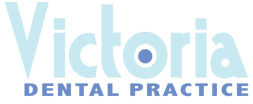Brushing Advice
Bad Breath (halitosis)
The problem is,it is very difficult to know if you have bad breath unless someone tells you about it. Which is very unlikely. Below we have tried to explain what causes bad breath, identified some of the tell-tale signs and provided some advice on how to try to prevent it.
Bad breath is mostly caused by excess bacteria build up in the mouth as a result of inadequate oral hygiene. Bacteria thrive in the warm and oxygen-free environment of your mouth. They feed on proteins, food debris and dead cells present in your mouth, causing tooth decay and gum disease which produce a foul-smelling gases.
There are many other factors which can cause bad breath, such as:
- The food we eat eg. garlic, onions, fatty foods and alcohol.
- Hunger – caused by a lack of food and liquids in the stomach.
- Not drinking enough water.
- Gum disease.
- Morning breath – usually a temporary problem that occurs whilst sleeping when our salivary glands are at rest. This results in insufficient saliva to wash away bacteria.
- Illness
- Hormonal changes
- Stress
- Conditions of the nose, throat or sinuses
- Avoid foods such as garlic, onions and spices.
- Avoid excessive alcohol and smoking.
- Eat regular meals.
- Brush twice a day as advised by your dental hygienist.
- Use an advanced antibacterial toothpaste.
- Clean between your teeth daily using floss or tepee brushes as directed by your hygienist.
- You could try using a tongue cleaner to remove bacteria accumulating on the tongue surface.
- Use a good mouthwash. We sell these at the practice.
- Pay regular visits to your dentist and hygienist.
- Keep your mouth as moist as possible. You could try chewing sugar-free gum if this is a problem for you. If you suffer a lot from dry mouth we can advise treatment for this at the practice.
- If you have dentures, leave them out at night in a recommended cleaning solution.


 Follow
Follow